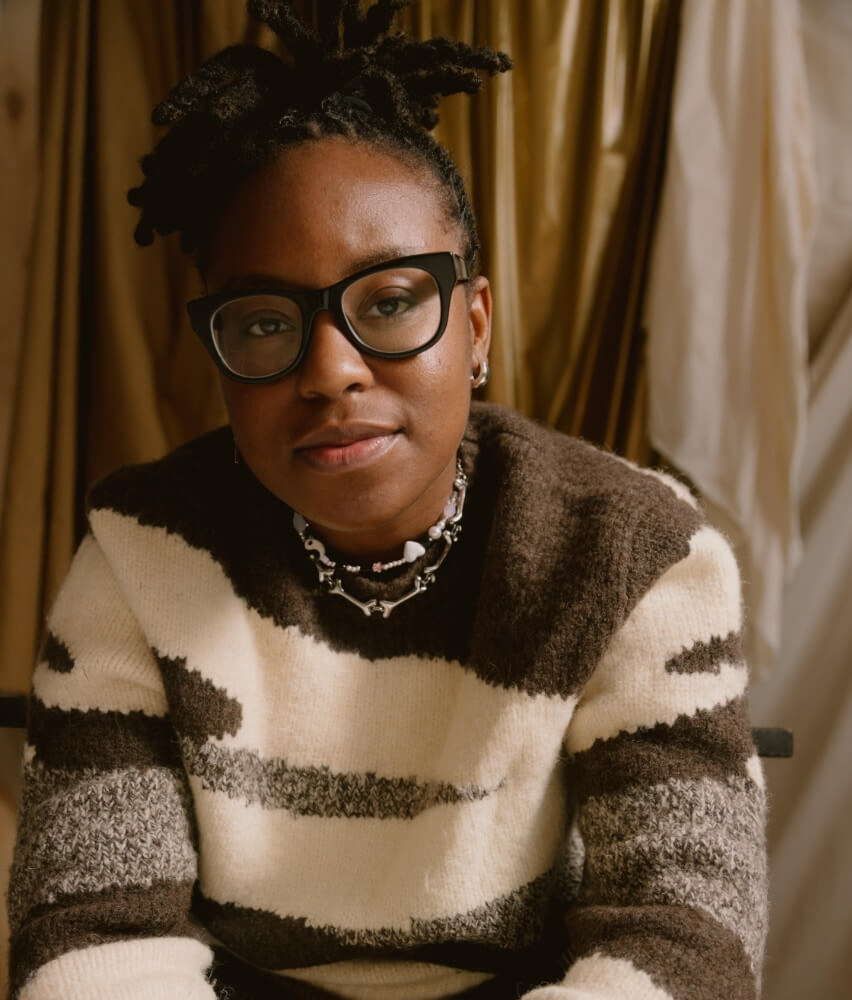Announcing Cohort 4 of the Southern Artists for Social Change
February 21, 2024 • 8 minute read
Photo credit: Tomas Montoya Gonzalez (2015)
NPN’s Southern Artists for Social Change envisions a world in which people of color living, working, and organizing for community change in the South have the power, resources, and opportunities to thrive.
The Southern Artists for Social Change program provides $75,000 project grants over three years to BIPOC artists and culture bearers engaging in social change in urban, rural, and tribal communities of Alabama, Louisiana, and Mississippi. The grant is part of the Surdna Foundation’s Radical Imagination for Racial Justice initiative, which has partnered with eleven organizations nationwide to support artists of color working to advance racial justice within their local communities. As part of this initiative’s US South learning cluster, Southern Artists for Social Change is a pilot program to expand NPN’s regional support beyond our local community in New Orleans, investing in the Deep South’s strong creative legacies and deep community-based practices.
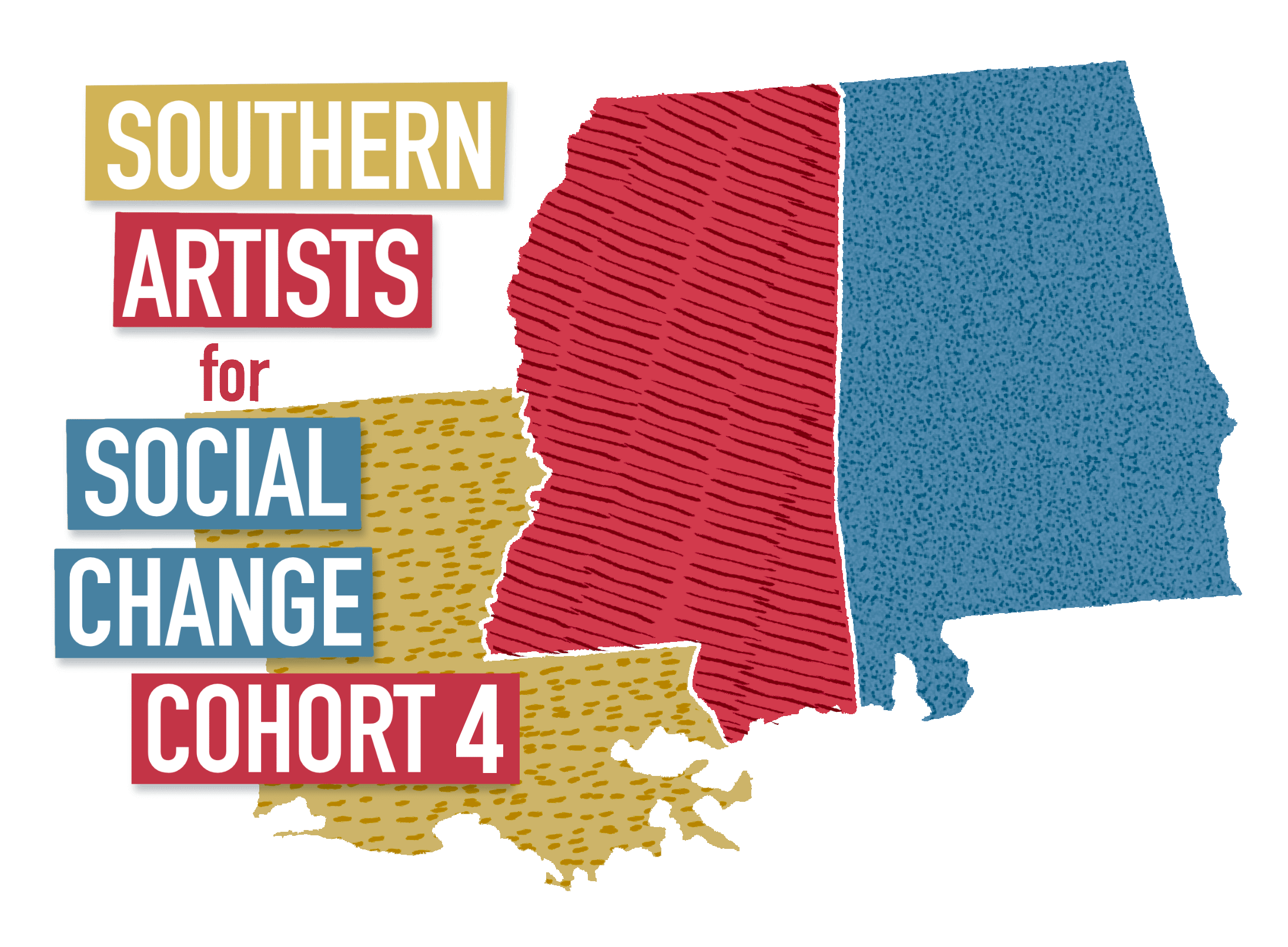
In its fourth year, Southern Artists for Social Change awarded $750,000 to 10 projects that identify community challenges or needs; imagine a different future; and practice, test, or design for approaches toward that future that center racial justice. Over its four years, the program has awarded $1,450,000 to support 34 projects.
“The Southern Artists for Social Change program is delving deeper into this work of change,” remarks Director of Southern Programs Stephanie Atkins. “I welcome this most recent cohort of artists and culture bearers into a concentrated body of work demonstrating critical imagination and excellence. This year, we’re implementing the 3-year grant cycle, which allows all cohorts to share and grow their network of support and time for the work to happen intentionally.”
“I am incredibly grateful to NPN for this opportunity and for being able to embrace that sometimes projects run on their own time and that there is a lot of grace that can be found when timelines are slowed down,” said Monique Verdin of the Land Memory Bank & Seed Exchange. “It has been super exciting to be able to dive into this project and to recognize that the deeper we go, the more secret gardens we are finding and connections we are being able to make and invisibilized stories that are being revealed to us through the process,” she observed after completing her Botanica project in Cohort 2.
Introducing the Southern Artists for Social Change Cohort 4
Caribbean and New Orleanian Arts (CANOA)
CANOA (Caribbean and New Orleanian Arts) is a new artist-led initiative and project space located in the Upper 9th Ward of New Orleans. Designed to be a resource center, a gathering place, a workshop space, and a lecture and performance venue, CANOA exists to support arts practitioners from the local Caribbean diaspora, facilitate exchanges among New Orleanian and Caribbean artists, and foster new cultural and artistic connections between New Orleans and the wider Caribbean. Born from the recognition that New Orleans is, in fact, a Caribbean city, CANOA works to bring native New Orleanian and immigrant Caribbean artists together in solidarity around a shared understanding of our mutual histories and cultural practices and will pilot a program providing support and resources for artist practitioners from local Caribbean diaspora communities.
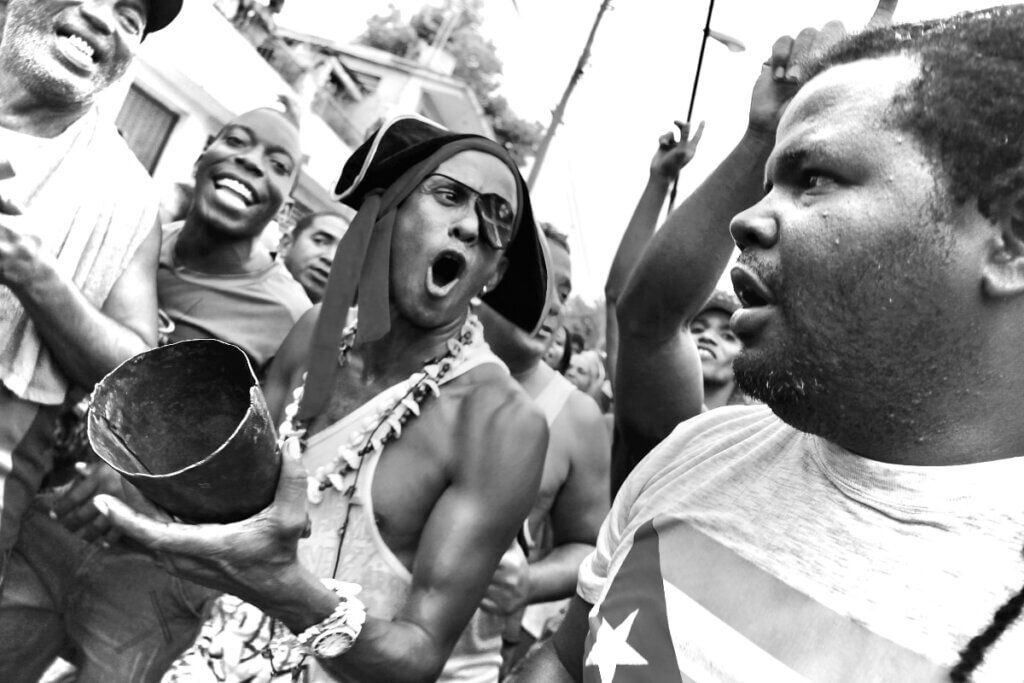
Devonta Ravizee / Ravizeenation LLC
5 Lil’ Penguins is a crime drama series inspired by true events in Birmingham, AL. Created to dissect the African American community’s social environment in Birmingham’s inner-city neighborhoods, the series highlights many racial disparities and decades of strategic fragmentation to bring about social change in the community. It also serves as an example of concepts used while teaching in partnership with the Patchwork Education organization, which allows the team to teach the younger generations true American history and encourage them to find their voices and use them for social change in their art– no matter the medium.
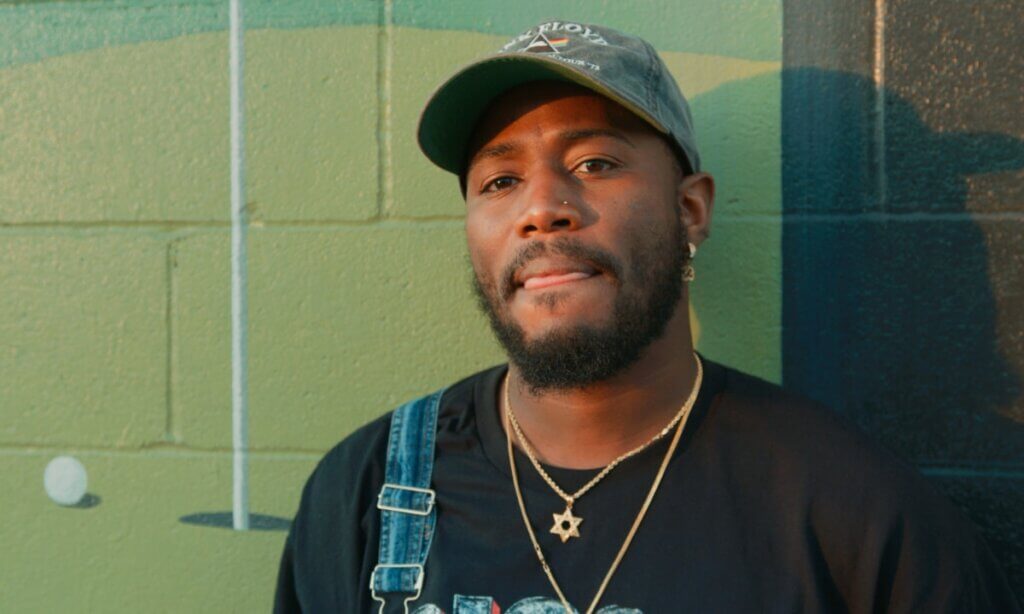
Greer E. Mendy
Born in Blackness/Born In LOVE is a three-part performance series celebrating Louisiana’s African American dance practices as powerful expressions of social-political commentary and unapologetic Black identity. Building on the research from Black Dance In Louisiana – Guardian Of A Culture, the series involves consultation with the Amistad Research Center, The Louis Armstrong Educational Foundation, Herlin Riley, Jr., and local artists and scholars. The performances, developed through community workshops, include “Fly With IT!” based on the book, interpretations of Louisiana’s major dance traditions, “From The Heart – A Dedication To Louis Armstrong,” and “Uptown, Downtown, Project – Baby…” narrating community, identity, commitment, resistance, and self-love with New Orleans “bounce” music.
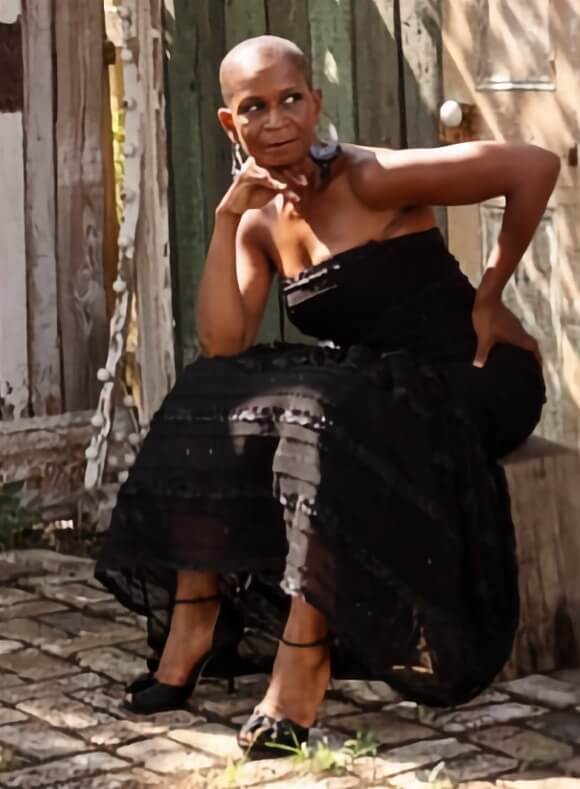
Jahman Ariel Hill
Before the B(l)oom embraces the theory of the “Flourish,” celebrating the infinite possibilities of Black existence. This genre-bending project will tell the story of historic downtown Ensley in Birmingham, Alabama, using poetry, dance, music, and film. The narrative focuses on Ensley’s renaissance, where local artists and community members are transforming the area through the arts, stimulating the economy, and fostering community growth. Before the B(l)oom, a creative documentary, engages Ensley residents and Birmingham artists in a blend of documentary and Afrofuturism. It explores the past, present, and future, envisioning dreams, and aspirations to create a Black Arts District. The documentary will also serve as a reflective, artistic roadmap for the community’s future.

Jazzie Jelks
Spotlight: Black American Arts & Culture is the first in a diverse, fully illustrated activity book series addressing diversity gaps in the U.S. education system and combating the nationwide ban on diversity, equity, and inclusion. Dedicated to preserving rural Black communities and their histories, this edition focuses on narratives shared by community elders. Jazzie’s mission is to collect and curate stories from local BIPOC elders, creating an interactive activity book that engages readers and highlights the rich cultural heritage of her rural hometown and surrounding counties. She conducts interviews and records memories through audio, video, and writing for this archival project.
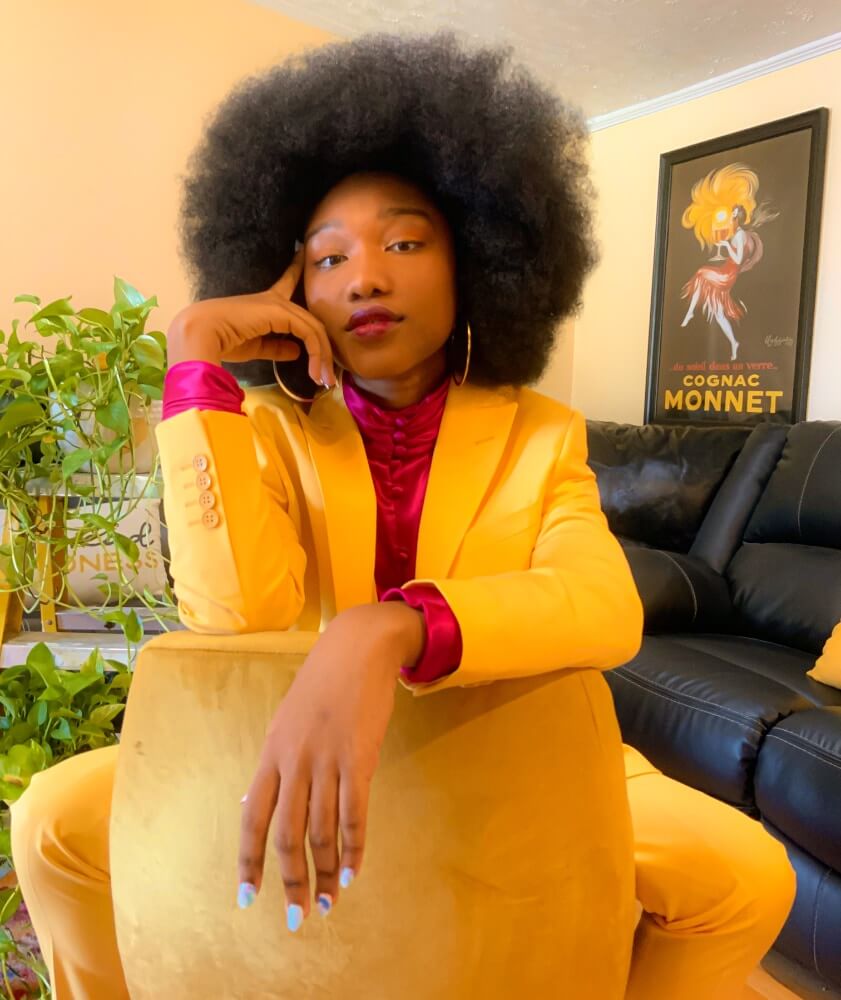
kai / Gallery of the Streets
[b]REACH: adventures in heterotopia, “Radio Outlaw,” will be a mobile pirate radio station in a revamped minibus, serving as a moving installation and gathering place. It will host and broadcast stories from urban and rural Black activists, artists, community historians, farmers, organizers, and workers, focusing on the history, status, needs, and possibilities of the Black cooperative movement. The broadcasts emphasize “hidden histories” and community knowledge, exploring cooperative economics for Black economic development and self-determination. The ongoing radio opera, [b]REACH: Tales from Radio Outlaw, features a short-sketch fictional story using “Abolition Tarot” to follow Prisoners #25 on their fugitive journey through Miserabilism. Inspired by Robert F. Williams’ Radio Free Dixie, Radio Outlaw is a political theater work with storytelling, conversations, characters, and strategic musical selections.
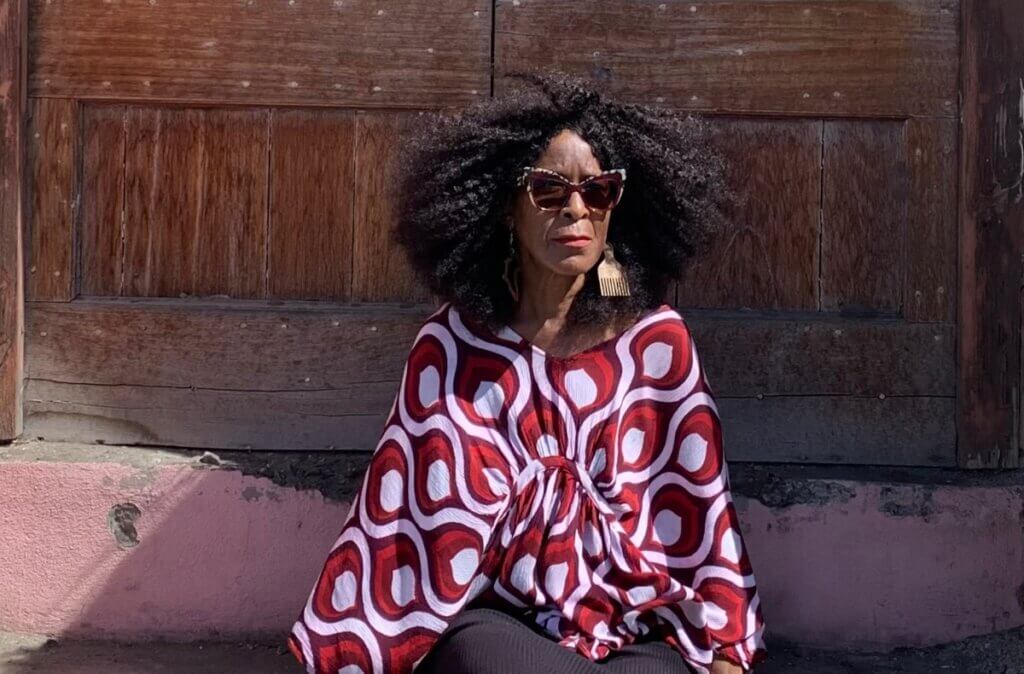
Nana Kumi
The Spirit in Our Roots is a land-based initiative in Mississippi empowering, educating, and sustaining programs for low-income farmers through African and African American folk growing practices and modern land techniques in predominantly Black communities. Focused on addressing food insecurity and racial injustice, the project documents challenges faced by local growers, using storytelling and portraiture to amplify their collective voice. A multi-media campaign will be developed to impact the project’s reach and success. By connecting with nature, the project inspires communal healing and envisions a stronger community of local growers fighting food injustice and harmful environmental practices that threaten the livelihood of Black Mississippians.
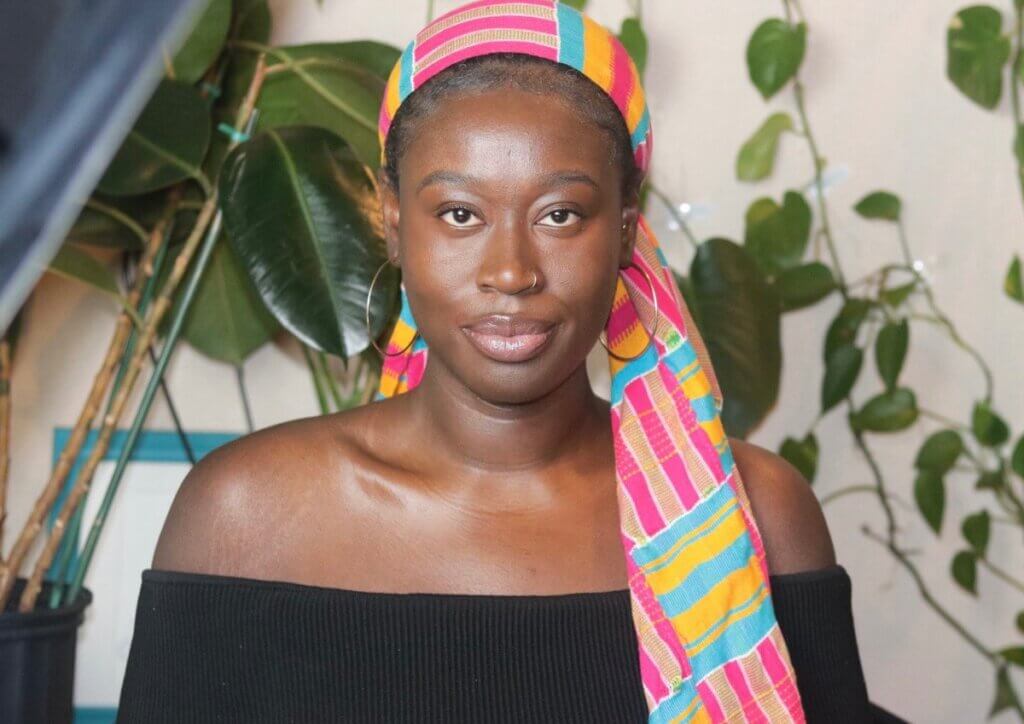
Nant‘a Cougar Goodbear / Coco Tribe of Canneci Tinne
CANNECIVILLE aims to showcase the presence of the Coco Tribe of Canneci Tinne, BIPOC Indigenous people who faced displacement, Indian boarding schools, and labelling as “scattered” by the Planter Elite in the 1800s. The project includes establishing a Tribal Affairs Office serving as a cultural hub for the Canneci people, fostering preservation, fellowship, and engagement with neighbors and other Indigenous communities. The envisioned space features a traditional medicine garden, vegetable garden, animals, and a solar-powered Kinaasa (roundhouse) for efficiency. CANNECIVILLE envisions a self-sustaining Tribal land with a 70′ Kinaasa housing artifacts, an office, and a community center.
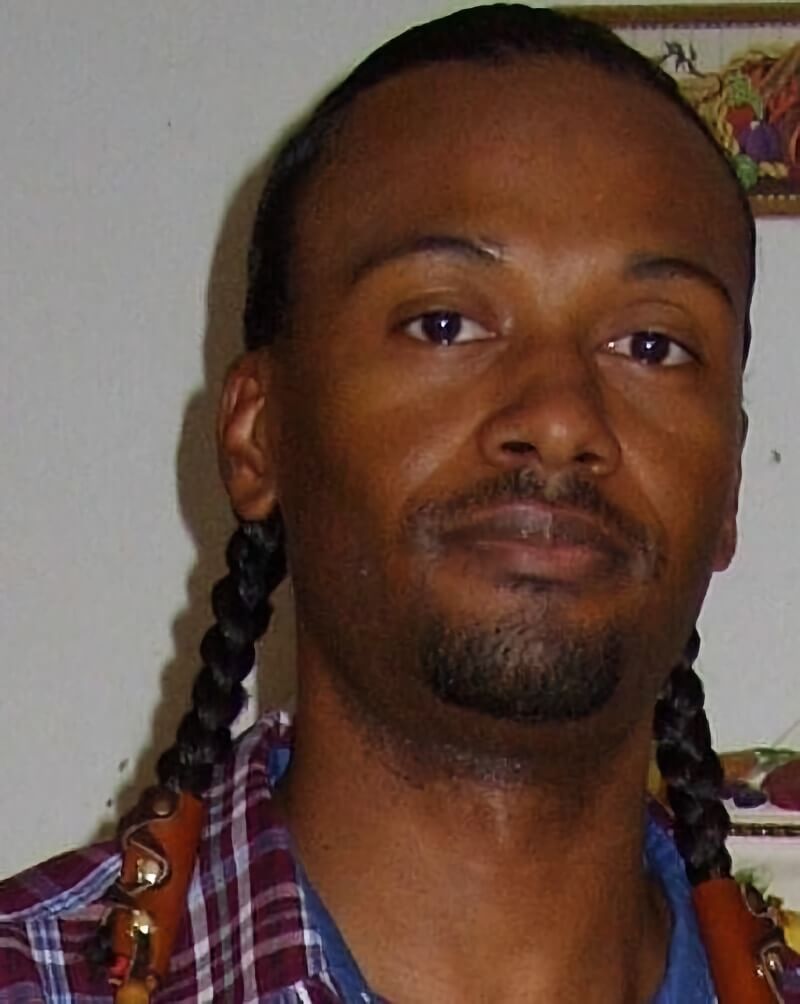
Simone Immanuel + Isaiah Simon / Bulbancha Beholders
The Bulbancha Beholder’s Residencies consist of two rounds of workshops spanning two consecutive years, engaging two cohorts of 6-8 BIPOC queer youth aged 18-27. Aimed at fostering healthy intimacy for themselves and their communities, the residencies will culminate in participants presenting performance art at the Bulbancha Beholder Performing Arts Festival in the third year. The program creates space for BIPOC queer youth to explore and manifest healthy intimacy, instilling confidence, capacity, and sovereignty in matters of love in all of its expressions. The residencies, held during summers 2024-2026, include physical workshops on monthly themes and virtual sessions for reflection and discussion.
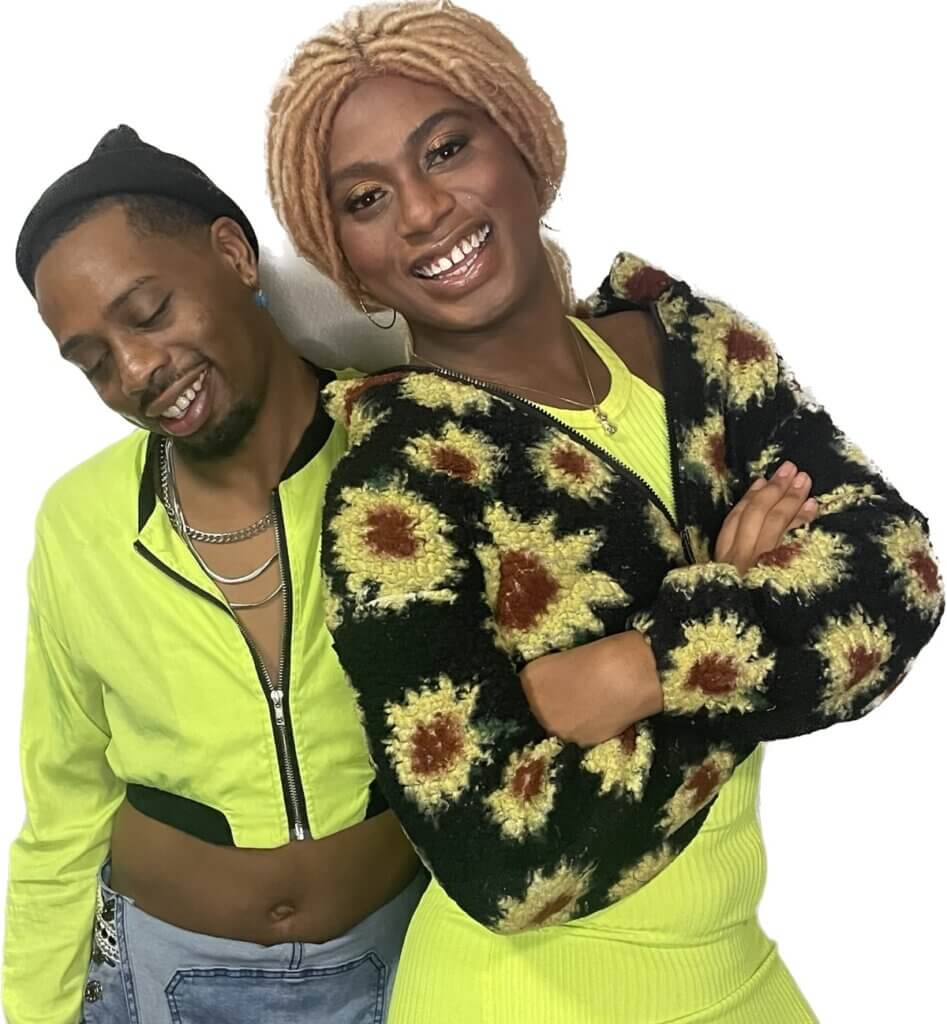
sydney a foster
pray the gay away is an immersive multi-layer exhibition inspired by artist Sydney A. Foster’s woes as a Black, queer body living in the Black American South and struggling with gender, race, and religious identities. pray the gay away will center around and explore black southern queer voices existing in spaces and systems where they aren’t considered and simply told not to be themselves due to respectability politics. The exhibition will consist of vivid photographs, the artist’s first-ever handmade objects that symbolize the Black church, and a short film of actual accounts of her coming out experience in the American South.
